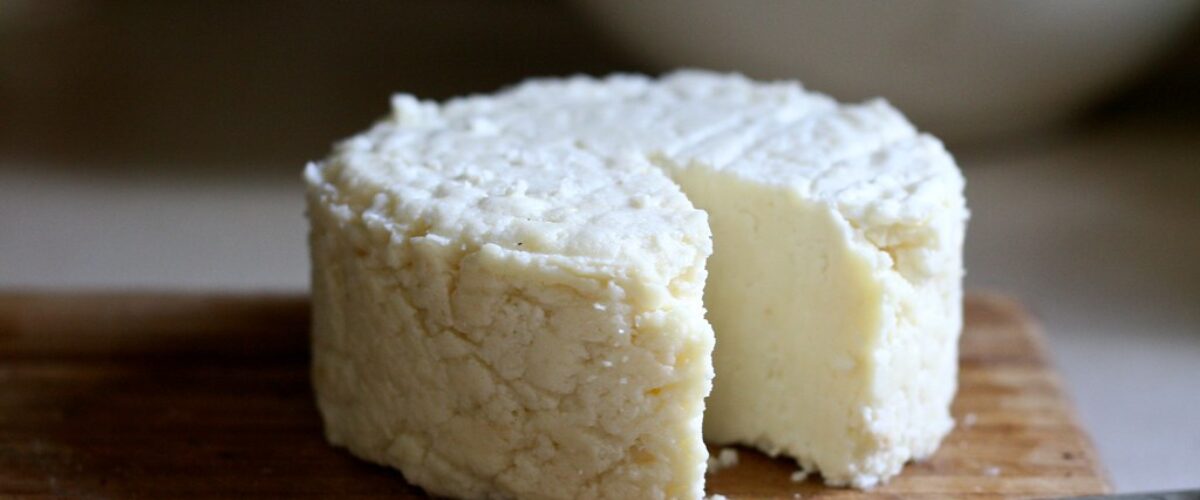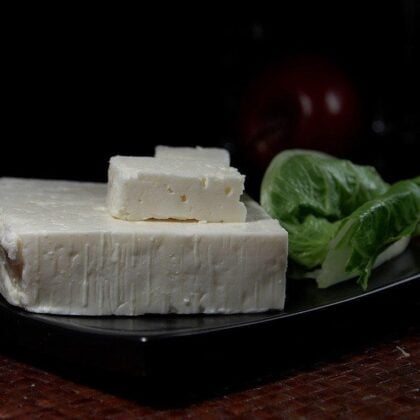
Not all cheeses are the same when it comes to lactose. Contrary to popular belief, some cheeses still contain a significant amount of milk sugar, which can cause problems for people with lactose intolerance. Fresh and young cheeses generally contain the most sugar, as they have not had time to ferment and reduce their lactose content.
Why do some cheeses contain more lactose than others?
The lactose content depends mainly on :
- the type of milk used (cow's, goat's, sheep's),
- the manufacturing process,
- the maturing time.
The fresher the cheese, the more intact its lactose content. Conversely, mature cheeses lose much of this sugar naturally over time.
What are the 10 cheeses with the highest lactose content?
Here is a list of cheeses to watch out for if you are lactose-sensitive:
- Fresh cheese very rich, because not refined 👉 Approximately 4 to 5 g lactose / 100 g
- Petit-suisse Its creamy texture is due to a high lactose content 👉 Approximately 4 g lactose / 100 g
- Ricotta Made from whey, it remains particularly highly charged 👉 Approximately 3 to 4 g of lactose / 100 g
- Mascarpone Used in pastries, it contains a high proportion of lactose 👉 Approximately 4 g lactose / 100 g
- Cottage cheese popular in dietetics, but high in lactose 👉 Approximately 3 to 3.5 g lactose / 100 g
- Mozzarella Young cheese, still very milky 👉 Approximately 1 to 3 g lactose / 100 g
- Feta cheese Although saltier, it still contains a significant amount of salt 👉 Approximately 0.5 to 1.5 g lactose / 100 g
- Cheese spread (cream cheese type): often made from whole milk 👉 Approximately 3.5 to 4.5 g lactose / 100 g
- Fresh goat's cheese Unripened versions are still rich in lactose 👉 Approximately 2 to 3 g lactose / 100 g
- Bush Derived from whey, it retains a high whey content 👉 Approximately 3 to 5 g lactose / 100 g
👉 Click here to find out the lactose content of all your foods
Which cheeses should you choose if you're lactose intolerant?
The good news, is that there are also cheeses that are much easier to digest. Hard, long-ripening cheeses such as Parmesan, Comté, Gruyère, Pecorino and Emmental contain less than 0.1g of lactose per 100g.
Why is this? Because during the maturing process, lactose is gradually consumed by lactic bacteria. The longer a cheese is matured, the more its lactose content decreases, until it is practically non-existent.
These cheeses are therefore a choice option for people who are intolerant or very sensitive, provided of course that they are eaten in reasonable quantities. They also provide quality proteins, calcium and powerful flavours that enrich the diet, even for those with digestive sensitivities.
How can I continue to eat cheese without digestive discomfort?
Avoiding lactose-rich cheeses altogether can seem complicated. Fortunately, there are several solutions:
- Choose mature cheeses** which naturally contain little lactose.
- Opt for commercially available lactose-free alternatives.
- Use a lactase supplement, such as those in the LACTOLERANCEwhich make it easier to digest lactose and enjoy cheese without discomfort.
👉 Discover LACTOLERANCE ULTRA, the ideal supplement for fatty, lactose-rich foods like cheese!
Summary
Certain cheeses such as ricotta, mascarpone or mozzarella are among the highest in lactose, because they are young and not very mature. Conversely, mature cheeses are generally better tolerated. To continue enjoying your favourite cheeses, there's a simple solution: lactose supplements. LACTOLERANCEwhich help to digest lactose more easily, so you can enjoy your meals without digestive discomfort.
Which cheeses are the highest in lactose?
Fresh cheeses such as ricotta, mascarpone, spreadable cheese and mozzarella are among the richest in lactose.
What cheeses should I avoid if I'm lactose intolerant?
It is advisable to avoid young, fresh cheeses such as petit-suisse, ricotta or feta, which still contain a lot of lactose.
Which cheeses contain the least lactose?
Mature cheeses such as Parmesan, Comté or Gruyère contain very little lactose and are often better tolerated.
Can you digest lactose-rich cheese?
Yes, by taking a lactase supplement such as LACTOLERANCE before eating cheese, it is possible to digest lactose without discomfort.
Do goat's cheeses contain lactose?
Yes, especially when fresh. Mature goat's cheeses, on the other hand, contain much less and are easier to digest.

Hello, I'm Vincent
Like you, I'm lactose intolerantI know exactly what you're going through and the difficulties you encounter on a daily basis. For over 10 years, I've been helping our customers to use our dietary supplements and giving advice and tips on how to improve their digestive comfort. I'm also a keen cook and gourmet, so you'll find my favourite recipes for a lactose-free diet in this blog.
Lactose intolerance is not inevitable! With LACTOLERANCE you can digest with complete peace of mind






